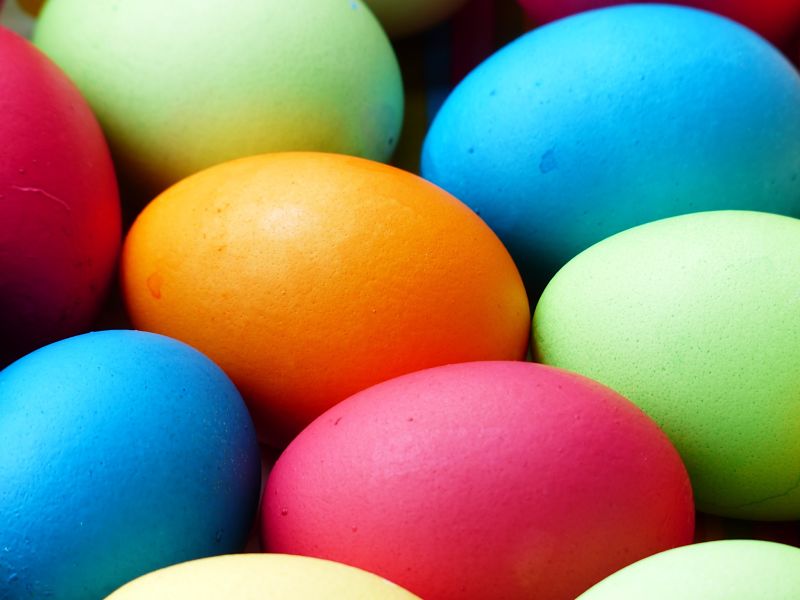
Easter Food Safety Tips: Staph Toxins are a Rotten Egg
It's a warm spring day. Children hunt for eggs while family members gather around a table laden with ham, potato salad, cream pies, and deviled Easter eggs. These are ingredients for a joyous Easter, but this could also be a recipe for vomiting, diarrhea, and abdominal cramping from food poisoning.
Staph aureus is a bacteria that multiplies rapidly in food at room temperature, including Easter favorites such as salads, eggs, and ham. It is a gastrointestinal illness caused by eating foods contaminated with toxins produced by the bacterium Staphylococcus aureus (Staph). Staph-created toxins cause gastroenteritis or inflammation of the lining of the intestinal tract. Foods that people handle and do not cook, such as salads, deviled eggs, and cream pies are at highest risk of transmitting Staph toxins, and staph is salt tolerant, so it can also grow in ham. Another spolier? Food contaminated with Staph toxin may not smell bad or look spoiled.
Staphylococcal toxins are fast acting, and symptoms usually develop within 30 minutes to six hours after ingesting. Symptoms are vomiting, nausea, stomach cramps, and diarrhea. The illness cannot be passed to other people and typically lasts for only one day.
The good news this Easter weekend? Staph food poisoning can be prevented.
General food safety tips:
- Wash your hands and under fingernails thoroughly with soap and water before handling and preparing food.
- Keep the kitchen and serving areas clean.
- Keep hot foods hot (warmer than 140* F), and cold foods cold (40* F or less).
- After eating, promptly refrigerate foods.
Easter egg safety tips:
- Discard dirty or cracked eggs before cooking.
- If hiding eggs, hide them in places where they are unlikely to come in contact with pets, wild animals, birds, insects, soil, or lawn chemicals.
- After the hunt, discard cracked eggs.
- Discard eggs that have been out of refrigeration for more than two hours total time (including the decorating time.)
- Use plastic eggs for Easter egg hunts.
Let smiles, laughter, spring breezes, and good food be the recipe for a successful Easter gathering. Don't let harmful bacteria toxins ruin your holiday.
~ VCHS Infection Control Coordinator Kate Morse, RN

